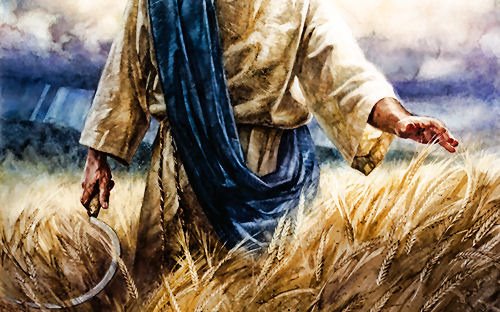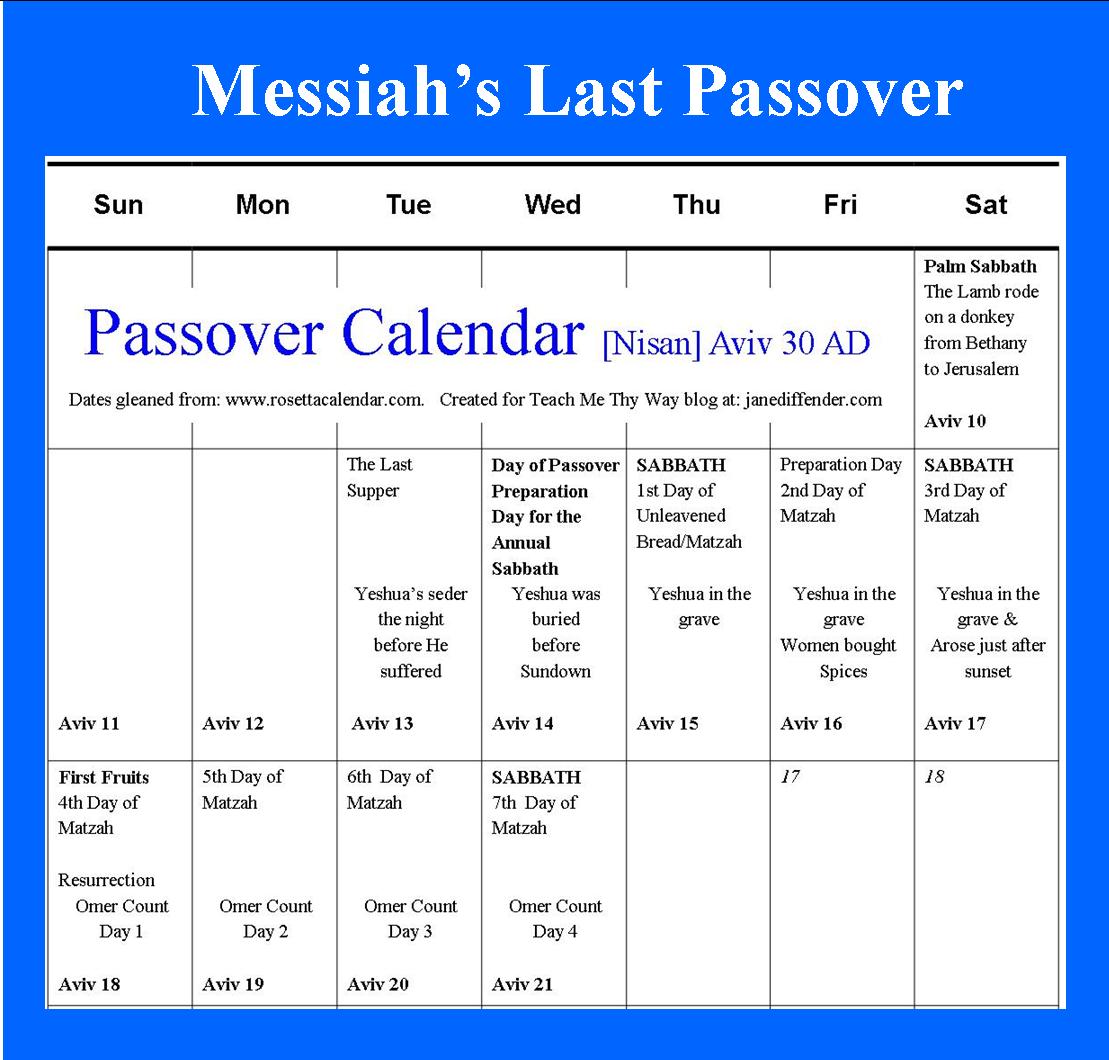The Firstfruits of the resurrection is a term that the New Testament gives to define the Messiah. Firstfruits is not a Sabbath, but it is a Biblical holy day that commemorates the greatest defeat of the enemy of our God. When death was given its final blow, and life was restored by the blood of the Lamb. Anciently, this day was celebrated as an agricultural festival of the first harvest of barley. It is a fully loaded holiday on many levels. When Messiah said He did not come to abolish the Torah of Moses, but to make it full, Firstfruits is ripe with fullness for both the Jew and non-Jew in Messiah Yeshua. It is a holy day that can be determined by Scripture, by two differing dates on the Biblical calendar.
Our local congregation has aligned itself with the Jewish calendar, to create unity, for both the Jew and the non-Jew, in honoring the Feasts of the LORD. Therefore, we are in one accord with the Jewish people, and the nation of Israel, for all the Biblical holidays, with an exception of two days. These two are the Feast of Firstfruits, and therefore, the celebration of Shavuot, which is a 50 day count from Firstfruits. There are two opinions on this topic, based on the interpretation of Scripture, one originating with the Sadducees, and one with the Pharisees. The diverse opinions creates differing days of celebrating the holidays.
Each year, we pray and seek how best to celebrate the Feast of First Fruits, in a way that is honoring to Messiah Yeshua. As a result, Abba has revealed some things that confirm the reasons to continue celebrating Firstfruits as the day after the weekly Sabbath, rather than the annual Sabbath for Unleavened Bread. One of them is rather humorous because of its irony.
In the year that Yeshua suffered to redeem us from the bondage of sin, the days on the Biblical calendar aligned so that Passover was on a Wednesday, and the annual Sabbath of Unleavened Bread was on a Thursday. There was a discrepancy in the first century, and even today, as to which Sabbath the Scriptures refer to about the observance of Firstfruits. Here are the words from Torah about these Spring Feasts:
“Speak unto the children of Israel, and say unto them, When ye be come into the land which I give unto you, and shall reap the harvest thereof, then ye shall bring a sheaf of the firstfruits [of barley] of your harvest unto the priest: And he shall wave the sheaf before the LORD, to be accepted for you: on the morrow after the Sabbath the priest shall wave it. And ye shall offer that day when ye wave the sheaf a he lamb without blemish of the first year…it shall be a statute for ever throughout your generations in all your dwellings. And ye shall count unto you from the morrow after the Sabbath, from the day that ye brought the sheaf of the wave offering [Firstfruits of the barley]; seven sabbaths shall be complete: Even unto the morrow after the seventh Sabbath shall ye number fifty days [until Shavuot/Pentecost]…”(Lev. 23:10-16).
If we used today’s modern Jewish reckoning, from the perspective of the Pharisees, Firstfruits would always occur on the 16th day of Aviv, and there would be no need to count the days. Shavuot/Pentecost would always occur on Sivan 6. This calendar determination causes one to lose the picture of Messiah Yeshua being buried in the tomb for three full three days and nights, with His resurrection at that end of the weekly Sabbath. Counting from the 14th of Aviv to the 16th day, doesn’t reveal the sign of Jonah. Messiah Yeshua told us, as recorded in all three synoptic Gospels, “…An evil and adulterous generation seeks after a sign; and there shall no sign be given to it, but the sign of the prophet Jonas: For as Jonas was three days and three nights in the whale’s belly; so shall the Son of man be three days and three nights in the heart of the earth.” (Matt. 12:39-40).
The ancient Sadducees reckoned the day for Firstfruits as the day after the weekly Sabbath (Saturday) and therefore, the Biblical holidays for Firstfruits and Shavuot would always occur on Sunday. This aligns with the Biblical calendar in the year 30 A.D. when Messiah was crucified (see: www.rosetacalendar.com). This calendar reckoning of the days allows for the sign of Jonah to be fulfilled. Messiah was crucified on Passover, Aviv 14, a Wednesday. The annual Sabbath of Unleavened Bread followed on Thursday. Counting the three days and nights, the 15th (Thursday), 16th (Friday), and 17th (Saturday) of Aviv, brings us to the end of the Sabbath day. These three days fulfill the sign of Jonah with the resurrection occurring at the end of the weekly Sabbath, at the eve of the first day of the week, at the exact time the Sadducee temple priests were harvesting the first fruits of barley. This would have made Aviv 18th the day of Firstfruits in the year of Messiah’s passion.
This where the understanding of these events takes a ironic turn. The Sadducees, while they were right in their reckoning of the day of Firstfruits, by beginning the count on the day after the weekly Sabbath, they missed the entire significance of the day. The Biblical holiday of Firstfruits is about the Resurrection of the Messiah. The Sadducees, in opposition to the Pharisees, did not believe in the resurrection of the dead! ( Matt. 22:23). To make matters worse, the Pharisees, who did believe in the resurrection, determined a calculation of days, that actually deny the three days and nights, of the sign of Jonah. What an irony! The Jewish religious leaders did not comprehend the meaning of Firstfruits in the resurrection of the One, who is the WAY, the TRUTH, and the LIFE in the days they lived.
With the Sadducee’s interpretation of Firstfruits, we find that Messiah Yeshua was raised from the dead on the first day of the week, on the 18th day of Aviv. In Hebraic thinking, the number 18 is the number for LIFE! The Hebrew word for life is chai, formed from the letters from the Hebrew Alef Bet, of Chet and and a Yod. The numeric value of Chet is eight, and the value of Yod is ten. Therefore, the First Fruits of the Resurrection occurred on the exact day that would indicate LIFE, resurrection LIFE!
Chayah (Chet, Yod, Hey) is the Hebrew word for REVIVE, a demonstration of the resurrected power, the LIFE of God. Chayah’s word picture means to behold the resurrection. The Hallel Psalm that is sung for Passover includes these verses: “The voice of rejoicing and salvation [Yeshuah] is in the tabernacles of the righteous: the right hand of the LORD [Yahweh] does valiantly. The right hand of the LORD is exalted: the right hand of the LORD does valiantly. I shall not die, but live [chayah], and declare the works of the LORD (Psalm 118:15-17).
The New Covenant Scriptures confirm what was written in the First Covenant Scriptures about the Feast of Firstfruits. “For if the dead rise not, then is not Christ raised: And if Christ be not raised, your faith is vain; ye are yet in your sins. Then they also which are fallen asleep in Christ are perished. If in this life only we have hope in Christ, we are of all men most miserable. But now is Christ risen from the dead, and become the firstfruits of them that slept. For since by man came death, by man came also the resurrection of the dead. For as in Adam all die, even so in Christ shall all be made alive. But every man in his own order: Christ the firstfruits; afterward they that are Christ’s at His coming. (Corinthians 15:16-23)
Just as Messiah Yeshua was resurrected to LIFE on the 18th day as the Firstfruits of the Resurrection, we can anticipate the future resurrection of the righteous when He returns to gather up His bride. For we shall not die, but LIVE forever with Him.
LaChayim! To LIFE!
Chag Sameach! Joyous Feast of Firstfruits to you all!
4 Comments
Trackbacks/Pingbacks
- Firstfruits and the Resurrection of Messiah Yeshua - Yesterday's Prophecy, Today's News - […] women of valor […]



Oy Vey! In defending your conclusion that FirstFruits is the Sunday following the weekly Sabbath after Pesach you make this statement: “If we used today’s modern Jewish reckoning…Firstfruits would always occur on the 16th day of Aviv, and there would be no need to count the days. Shavuot/Pentecost would always occur on Sivan 6.”
Three comments: 1st, though you are correct, by “modern” reckoning, by lunar month reckoning, Shavuot can fall on the 5th, 6th, or 7th thus negating your statement that days don’t need to be counted. But also, since you are arguing that FirstFruits is always the Sunday after the weekly Sabbath, there would also be “no need to count the days”! So you’ve used a poor argument!
2nd, “FirstFruits” don’t “rise” so this is truly a phony argument, insisting that the Messiah had to “rise on Firstfruits”. The relation of the Messiah to FirstFruits is not the day he rose, but that he represented the bikkurim – “firstborn”.
3rd, The purpose of counting the 50 days is not tied to “Shabbats”, but to the day of the Exodus! When the Hebrews departed Egypt, the first day of travel was the 16th! Then exactly 50 days later, the Ten Words were given on Mt. Sinai. This was from the 16th and not the weekly Sabbath after the exodus began!
Bill,
1st, According to The Jewish Book of Why, the Sivan 6th date for Shavuot was determined not from the Bible, but from the Talmud. The connection to the Revelation of Torah at Sinai was not incorporated into Judaism until the 3rd century, after the destruction of the Temple. Yes, the giving of Torah occurred in the third month, according to Ex. 19, but the date was not designated in the Bible. Shavuot is the season of the Revelation of Sinai, it is not the date that matters.
2nd, The HaBikkurim were lifted up and waved by the priests. That it the “rising” I referred to. Yeshua was lifted up and ascended on the Feast of Firstfruits.
3rd, Your exclamatory sentences are not accurate. Torah tells us that the Sabbaths are connected to the observance of Shavuot. Leviticus 23:15, “And ye shall count unto you from the morrow after the Sabbath, from the day that ye brought the sheaf of the wave offering; seven Sabbaths shall be complete”. Shavuot is not indicated in Scripture as occurring “exactly 50 days later” than the Exodus from Egypt. Once again, I refer to The Jewish Book of Why, “The Bible in no way associates the holiday of Shavuot with God’s Revelation on Mount Sinai. The Talmud, however, does make an association between the two. Apparently, the connection was established when scholars, following the biblical account, calculated that the dates of the agricultural festival of Shavuot and the events at Mt. Sinai coincided…The Bible does not connect Shavuot with the giving of the Tora on Mount Sinai…The earliest reference to Shavuot as ‘the time of the giving of the Tora [Zeman Mattan Toratenu]’ is in the Talmud. The third-century C.E. scholar Rabbi Eleazar said that all authorities agree on the necessity of rejoicing with good food an wine on Atzeret (the talmudic name for Shavuot) because on that day the Tora was given to Israel (Pesachaim 68b). Shavuot became increasingly associated with the Revelation at Mount Sinai because, as a purely agricultural holiday, it had lost its significance. The Jews of Palestine had become an urban people, and to keep the holiday alive it became necessary to associate the Shavuot holiday with an historical event. The event chosen was the Revelation because it occurred about the same time of the year that the agricultural festival of Shavuot was celebrated.” [The Jewish Book of Why pages 211-214, 1981 edition].
Dear Jane,
I have been pondering the same thing!!! THANK YOU!!!!!
Happy Resurrection Day! Nancy Petrey Petrey, ALABAMA http://www.jewishrootsjourney.blogspot.com
Thanks! Happy Firstfruits to you too!